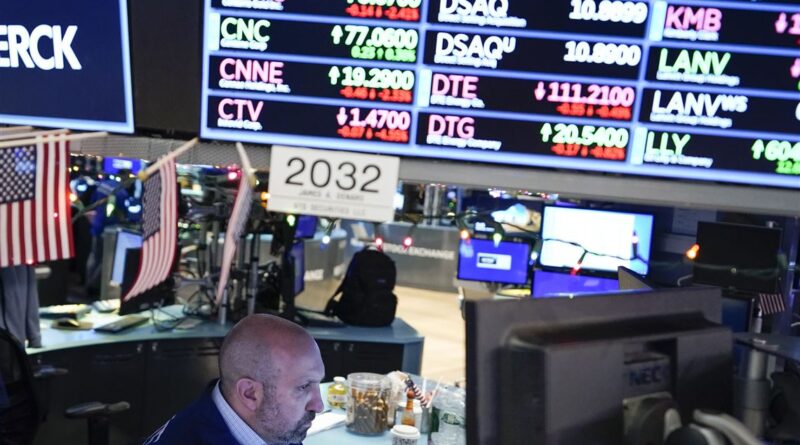Global Markets on an Upbeat Ride Despite Tariff Turbulence
Global markets witnessed an upward trajectory following a tumultuous Friday on Wall Street, triggered in response to fresh employment data and freshly announced tariffs impacting a wide array of nations from the U.S. On Wall Street, the major indices saw a robust opening, with the Dow Jones Industrial Average making notable strides with a 0.6 percent uptick.
The opening bell invariably set the tone for a positive start to the week across many European markets. Paris and Frankfurt emerged in the forefront, clocking gains of 1.0 percent and 1.3 percent respectively. Investors broadly showcased a bullish outlook, stoking sentiments of a potential Fed stimulus in light of the recent employment data.
According to investor probabilities presented by the CME’s FedWatch tool, there’s an overwhelming 87.5 percent chance of the Federal Reserve instituting a quarter point reduction in interest rates. A cloak of uncertainty does linger, however, especially with U.S. President Donald Trump’s newly announced tariffs ready to come into play by Thursday.
Switzerland’s stock market found itself in challenging waters, declining around two percent on Monday. It was the market’s first day back after a holiday and was met with the daunting news of a 39 percent U.S. tariff rate. Despite the initial downturn, the index rebounded during the afternoon, buoyed by the Swiss government’s announcement of a revised proposal aimed at Washington.
A wave of optimism swept over Swiss traders under a collective belief that the Swiss government may successfully negotiate a decrease in the harsh tariff rate, particularly as it significantly exceeds those levied on the European Union and the United Kingdom. Meanwhile, financial institutions in London experienced a positive kick, driven by relief from the looming compensation charges related to contentious car loans from back in 2007.
The banking sector saw a rise in stock performance, with Lloyds Banking Group growing a robust eight percent and Close Brothers, a FTSE 250 company, leaping by an impressive 20 percent. The response on the Asian front, however, was mixed as the week commenced. Hong Kong and Shanghai registered gains, whereas Tokyo’s market saw a downturn.
Investor sentiment was strained on the previous Friday as U.S. job growth fell short of expectations in July, with updated figures revealing the lowest recruitment levels since the onset of the Covid-19 pandemic. Emerging fears suggest that the newly introduced tariffs by Trump’s administration may be impacting the economy adversely.
In response to job data, President Trump elected to replace the labor statistics commissioner, alleging manipulation of employment data for political interests. The market outlook transformed positively on Monday though, given that the slow job growth might accelerate Fed rate cuts, providing a bolster to the economy.
Financial analysts are predicting that policymakers will steer their attention primarily towards staving off recession rather than focusing on price control. An interesting development in the Fed came with the early departure of governor Adriana Kugler, occurring six months in advance, which could potentially present President Trump with an opportunity to sway the Federal Reserve’s stance towards lower rates.
Speculation is rife that the successor to Powell may lean towards dovish economical strategies, signaling a higher chance of adhering to Trump’s urges for interest rate slashes. Amidst these market movements, oil prices took a hit, declining over two percent following a considerable surge in output from eight OPEC+ nations, leading to market expectations of copious supply.
Market trends noted a 0.7 percent climb in the Dow Jones Industrial Average, closing at 43,840.86 points. The S&P 500 followed suit, rising 0.7 percent to reach 6,279.42 points. The tech-heavy Nasdaq Composite also enjoyed a bullish run, marking an upward trend of 0.9 percent to end at 20,839.29 points.
The day also brought some cheer for European bourses, with London’s FTSE 100 pressing forward by 0.4 percent to close at 9100.83 points. The CAC 40 in Paris gained 1.0 percent concluding at 7,618.62 points, while the DAX in Frankfurt climbed 1.3 percent to settle at 23,728.46 points.
In contrast, the Tokyo-based Nikkei 225 recoiled 1.3 percent to conclude at 40,290.70 points. Hong Kong’s Hang Seng Index responded positively by moving 0.9 percent upward, closing at 24,733.45 points, with Shanghai’s Composite too exhibiting similar optimism, closing 0.9 percent higher at 3,583.31 points.
On the currency frontier, the dollar declined against the yen to 147.11 yen, from Friday’s 147.43 yen. The euro kept steady at $1.1586 against the dollar, while the pound increased to $1.3310 from $1.3276. The euro slipped against the pound, moving down to 87.06 pence from 87.25 pence. The crude oil market reflected a downturn, with West Texas Intermediate dropping 2.4 percent at $65.75 per barrel and Brent North Sea Crude down by 2.1 percent at $68.21 per barrel.

